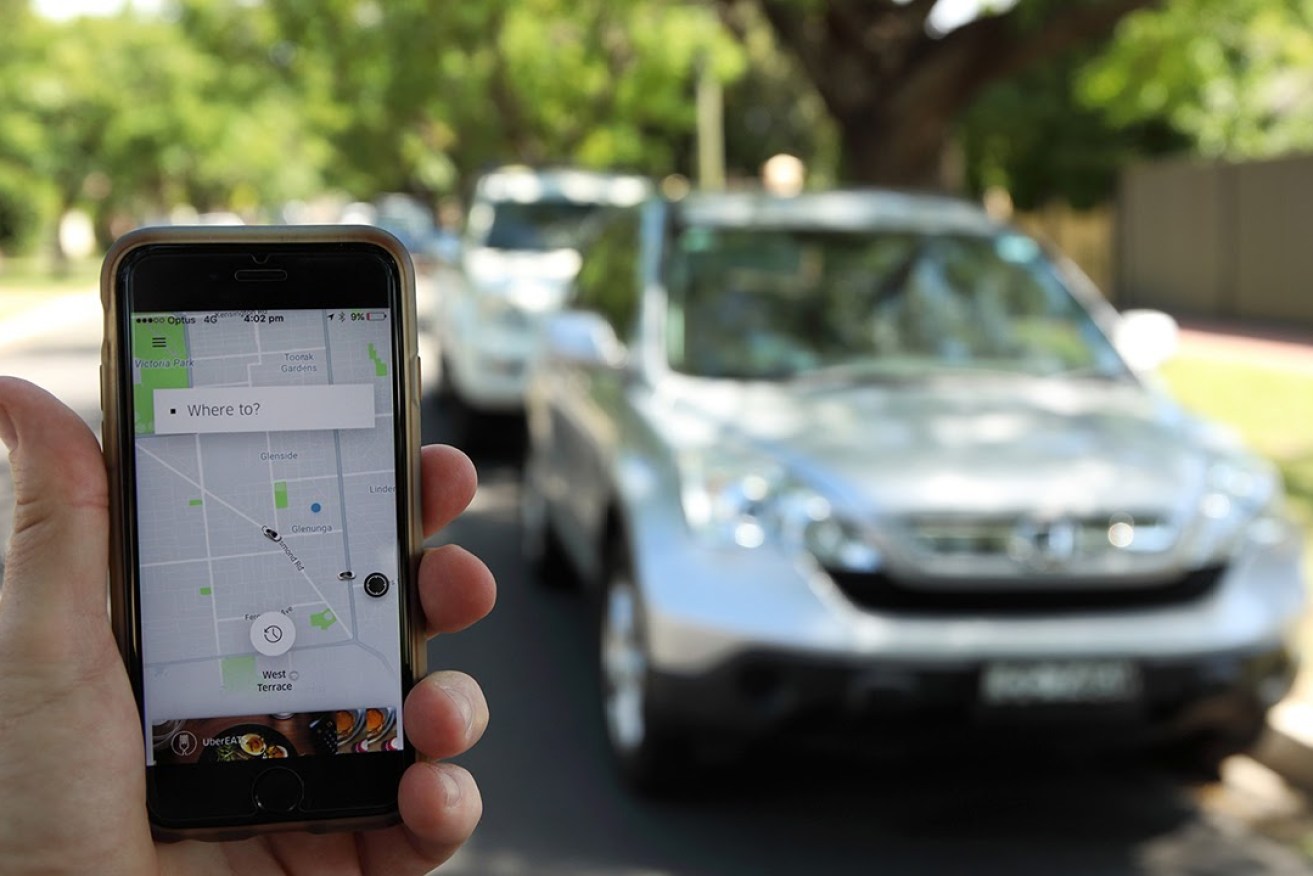State Govt and Uber end standoff
The State Government has ended its long standoff with Uber over the legality of the ride-sharing service, with the global giant agreeing to abide by South Australia’s accreditation requirements.


Photo: Tony Lewis/InDaily
The agreement comes as the Government confirms new transport regulations, which will see cab fares cut on one hand, and increase on the other.
Beginning on Monday (April 3), the maximum EFTPOS and credit card fee for taxi passengers will be slashed from 10 per cent to 5 per cent, resulting in a saving of just over $1 on the average fare of $21.70.
On the same day, the long mooted $1 levy on all taxi and ride-sharing fares will come into technical effect, but customers will not be charged until May 1 to give taxis, chauffered vehicles and rideshare operators time to adjust to the change.
The levy was designed as a sweetener to the established taxi and chauffered vehicle industry, helping to pay for fee reductions across the industry as well as payments for taxi license holders and lessees to compensate them for Uber’s entry into the market.
While new rules for Uber’s operation in South Australia came into effect last July, the company has been operating outside of the regulations which it has criticised as expensive, cumbersome and time-consuming.
However, Transport Minister Stephen Mullighan announced today the Government had come to an agreement with Uber to accredit its services, with a promised review of insurance premiums seemingly the key factor that sealed the deal.
He said Uber had advised the Government it would apply for accreditation as a centralised booking service – a key requirement of the regulations – and “transition” its drivers through the Government’s accreditation process.
The Government had also decided to increase penalties for unlicensed and unaccredited passenger transport services, including docking drivers demerit points, suspending their licences or disqualifying them from driving.
Courts would also be enabled to recover any profits obtained through committing an offence, such as running an unaccredited service.
Mullighan said the reduction in EFTPOS and credit card fees would largely offset the introduction of the $1 levy.
“The State Government has worked hard to negotiate a balance between the desire for more choice, better quality of service, improved working conditions and the sustainability of existing operators and investors,” he said.
“While our reforms have opened up the taxi and chauffeur vehicle industry to new competition, we have to ensure strict accreditation and vehicle standards for all drivers and operators are maintained.
“Our overriding concern is that drivers, cars and booking services are safe. The community expects us to enforce the law and put safety first and that is what we are doing.”
In January, InDaily reported on the scope of the Government’s undercover operations to crack down on UberX – the service that allows people to use their own vehicles to accept passengers via an app.
Mullighan said today 300 drivers had been caught in breach of regulations – including Uber, taxi and chauffered car drivers – which was why he decided to introduce tougher penalties.
He said Uber had committed in writing that it would begin the accreditation process next week.
After that process, passengers would be assured that the drivers were fit and proper people to provide the service, having gone through police and medical checks, and their cars were roadworthy.
He said the Government didn’t compromise on any of its requirements to get Uber to agree to accreditation, but he did promise to review compulsory third party insurance premiums at the end of this year once some data had been gathered.
“The main… concern that Uber was left with was the amount of compulsory third party insurance that they are required to pay,” he said.
“Here in South Australia, like everywhere else in Australia, we have different compulsory third party insurance premiums for all of our cars that we drive privately but there are much higher premiums for taxis and there are also higher premiums for blue plate chauffered cars. None of us had contemplated ride-share vehicles and what sort of premium they should have, so we put them in with the chauffer vehicle compulsory third party premiums. They have asked that we review all of the premiums for all of the operators.”
He said a similar review in the ACT resulted in lower CTP premiums for taxi and chauffer vehicles and the introduction of a new category for ride-share vehicles.
Uber introduced the service in South Australia without accreditation and continued to operate it throughout negotiations with the Government on compliance with its regulatory framework.
Uber South Australia general manager Tom White did not reveal whether the company had compromised on its previous demands for cheaper, faster, less onerous accreditation requirements.
“Following close consultation with the South Australian Government, Uber is pleased to be finalising its accreditation,” he said.
“This is an important step forward that will provide certainty for more than 2,000 Uber driver partners who rely on ridesharing to earn some extra money.
“We’ll continue to work closely with the Department of Planning, Transport and Infrastructure as we bed down these important reforms.
“While we don’t believe a new and permanent tax on South Australian transport is justified, we intend to comply with our requirements as an accredited booking service.”
UberEats, a food delivery service, has operated legally in South Australia since its introduction last year.




